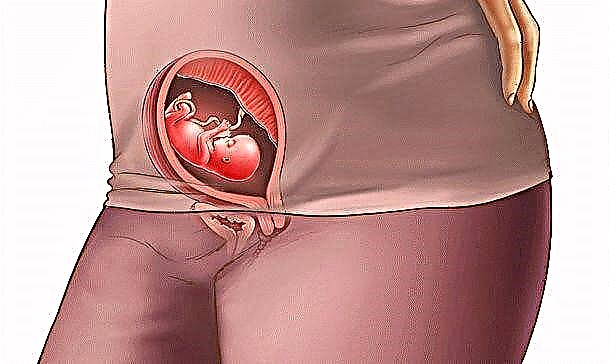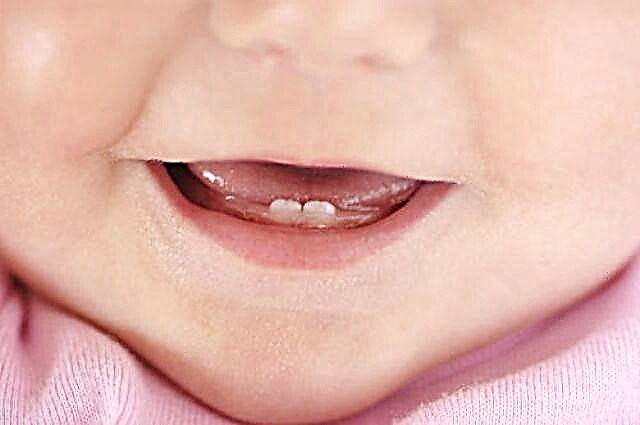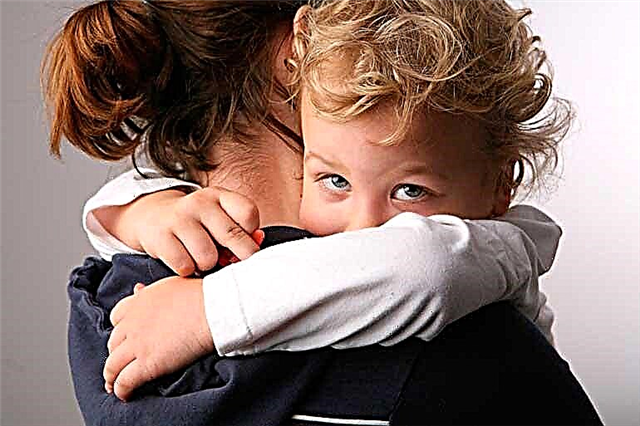13 weeks pregnant is often the beginning of a quieter time. Even the most severe toxicosis passes or has already stopped. You probably have time to take care of yourself. For example, update your wardrobe, because your waist has become rounded, and your tummy has grown with the baby.

Settlements on time:
The thirteenth obstetric week is equal to the eleventh from conception. In order not to get confused, check out the methods for calculating the gestational age here.
Feelings and well-being
Many moms feel like they are literally coming to life in the thirteenth week. All the unpleasant sensations gradually pass:
- the intensity of nausea decreases;
- vomiting practically stops;
- irritability is replaced by a feeling of peace and joy;
- strength becomes more;
- drowsiness recedes.
In rare cases, toxicosis still does not go away. If so, keep fighting it (see how - see here).
At the end of the first trimester, many women especially suffer from flatulence and constipation. The grown uterus seems to "press down" the intestines and reduce its muscle contractions (peristalsis).

What happens to mom's figure
It is at the 13th week that many women notice how much their belly has become round. It seems that nothing is noticeable from the outside, but only if the clothes are loose fit. Now even loose jeans can be uncomfortable in the belt. So it's time to go to the store for special maternity pants. They are very comfortable and adjustable at the waist - you can wear them for several weeks or even months. Depends on your figure for the next two trimesters.
Photos of tummies:
If twins or even triplets grow up under the mother's heart, the pregnancy cannot be hidden in any way, except under outerwear. Get ready for prying eyes and don't be embarrassed.
The breasts may still grow slightly. Once your bra gets tight, pick up a new one. Stock up on bra pads if you already have colostrum.
It is important. You cannot walk in tight, oppressive clothing. Choking and even fainting may occur.
Complications of pregnancy
A pregnant woman's uterus is constantly growing. In this case, the internal organs move apart, the nearest ligaments and muscles are under load. Because of this, heartburn occurs, and the stomach sometimes hurts. Feelings should be tolerant and cause only slight inconvenience.
Any severe, unpleasant pain in the abdomen, side or lower back is an alarming symptom, a doctor is urgently needed. Especially if with pain there is a feeling of strong tension in the entire abdomen.
Watch for vaginal discharge. The norm is white or transparent mucus, without a pungent odor and in small quantities. Everything else (brown, yellow, reddish discharge) already speaks of some kind of disease or the threat of miscarriage.
Infections, unhealthy diet, and unhealthy lifestyles can cause a frozen pregnancy. This is fetal death and a serious threat to a woman's health. Only doctors in a hospital can cope with this condition.
With a lack of potassium and calcium in the blood, pain and cramps in the legs may appear.
Medical supervision
Surely you are already registered with the antenatal clinic. Then you already have a plan of examination and testing. See the doctors you need regularly. When donating blood, be sure to follow the preparation conditions, otherwise the result may be incorrect.
If you have not yet had your first scheduled ultrasound, you will be assigned one. You can look at your baby, but you are unlikely to know the gender of the baby.
Photo of ultrasound:

If you are diagnosed with a serious medical condition that can be treated with antibiotics, your doctor may prescribe them. The placenta is so developed that it protects the baby from the side effects of this group of drugs.
How does a baby grow
The size of the fetus at the thirteenth week will reach 65-78 mm, weight - 14-20 grams.

The kid grows and develops very quickly:
- the heart makes 140-170 beats per minute, for the fetus this is a normal rhythm;
- more and more individual features in the face;
- facial expressions develops, the baby learns to smack his lips;
- the rudiments of twenty milk teeth “hide” in tiny gums, which I will gradually erupt within two years after giving birth;
- the brain is actively developing and "commands" the reflex movements of the fetus;
- the pancreas starts producing insulin and the gallbladder produces bile;
- vocal cords continue to develop;
- bone tissue is strengthened, especially on the ribs;
- the growth of the head slows down slightly (now it occupies almost half of the body length);
- the body begins to grow a little faster;
- the placenta reaches a thickness of about one and a half centimeters;
- the eyelids remain tightly closed;
- due to the development of the cervical muscles, the chin of the fetus is no longer pressed against the chest;
- the skin develops, but remains very thin, it is permeated with blood vessels;
- the chest rises and falls, as if the baby is breathing, but this is also a reflex (oxygen enters through the blood);
- special digestive villi are formed in the intestines;
- in boys, the prostate gland develops, and in girls, the ovaries;
- little by little the sense of smell begins to "work".
[sc: rsa]
There is not a fully tested theory: amniotic fluid smells like what a pregnant woman eats. When breastfeeding, milk will also smell and taste like your mother's diet. To ensure that newborns and infants do not refuse breast milk, it is recommended not to change the diet immediately after childbirth.
It is important. In the early stages of pregnancy, the mother's illness or stress affected the entire body of the baby. Now, every health problem can lead to the pathology of the organ that develops most intensively..
Recommendations
The main advice now is to love yourself, your body and your child. On your term, you need to become even more careful in everything.
- Meat or fish, eggs, fruits, vegetables, cereals and dairy products are your daily diet.
- Preferably four or five meals a day.
- Remove and do not eat the skin of the chicken.
- If you have a sweet tooth, buy marmalade, marshmallows, marshmallows (no dyes), dried or dried fruit. Forget about buns and cakes. If you really crave chocolate, eat one or two wedges.
- Try to 100% give up fried foods, smoked meats, canned foods, spicy foods.
- Do not drink strong tea and coffee if you love these drinks and cannot refuse them. But if you have low blood pressure, your doctor may recommend coffee.
- It is believed that the expectant mother should definitely receive calcium from vegetables, and not from animal products. It is argued that animal calcium causes earlier ossification of fontanelles on the head of the fetus and then complicates childbirth. This is just another myth. It is very difficult to oversaturate the body with calcium during pregnancy, since you really need a lot of it. The source of this trace element does not play a role at all. And the fontanelle in children grows only closer to one year of age.
- If you are constipated, give up rice and be sure to include dried apricots and prunes in your diet. Dried apricots will also help with cramps, as they contain potassium.
- As always, alcohol and smoking are prohibited.
- Walk more often in parks, near rivers, ponds and fountains. There is an opportunity to go out of town - just wonderful.
- At the dacha or personal plot of all agricultural work, you can only pick berries, and not for long and sitting.
- If your legs hurt from long walks, walk more slowly and over short distances.
- Take up yoga, swimming, or special gymnastics. You need to prepare for the upcoming birth now.
- Join any club for pregnant women, communicate, share experiences, help each other at least via the Internet.
- Talk to your baby, stroke your tummy and think good things.
- If you feel stuffy at work or at home, ventilate the area or go outside whenever possible.
- If you have a tonometer at home, measure your blood pressure in the morning and evening, and write down the readings. If there are deviations from your individual norm, show the records to your doctor.
- Lubricate your breasts, abdomen and thighs with creams for stretch marks or just olive oil.
- Dress so as not to freeze or overheat. If the weather is unstable, use multiple layers of clothing. During warmer months, carry an umbrella with you.
- There are no restrictions on sex if you have one fetus and there is no threat of miscarriage.
13 weeks of pregnancy is a time of joy and positive emotions. Be calm and happy - a second trimester awaits you.
← 12 week 14 week →



